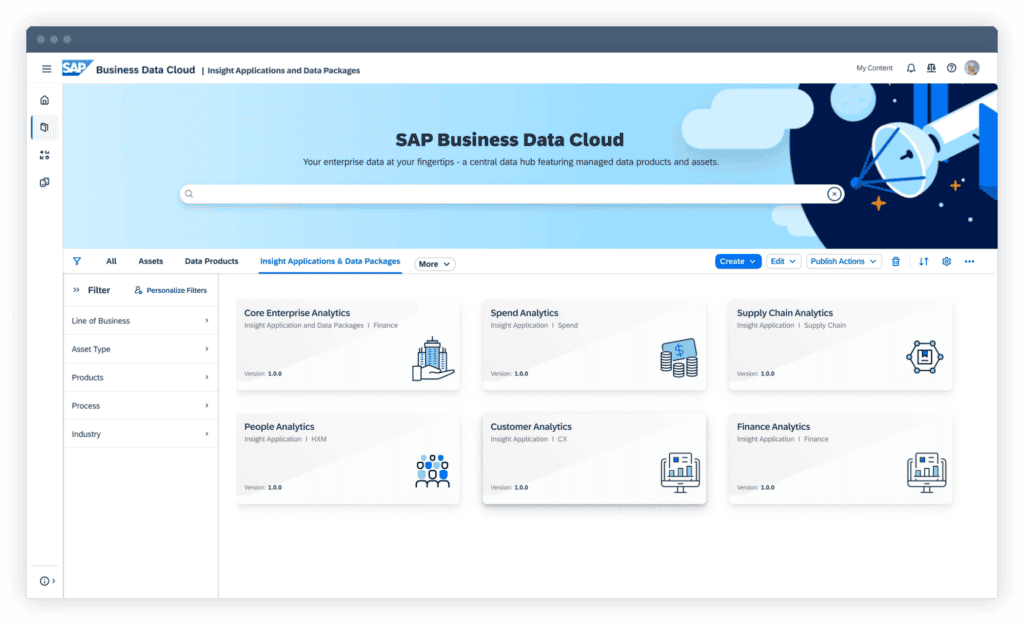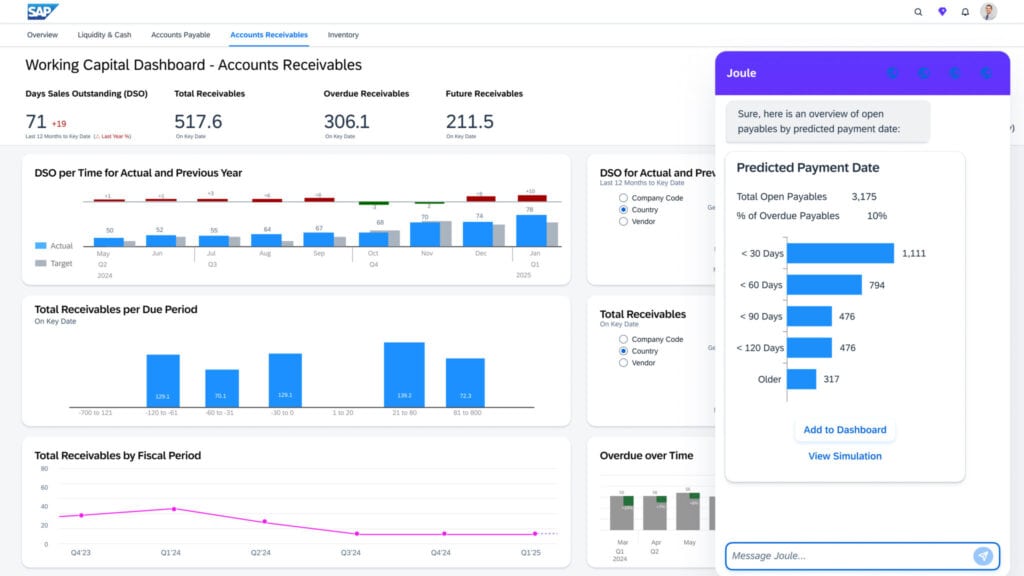Organizations have been facing overwhelming challenges managing the vast amounts of data across their multiple solutions, all while trying to ensure accuracy and security. Traditional data management programs have led to inefficiencies and data silos limiting enterprises’ ability to make informed choices. Christian Klein, CEO at SAP, emphasized this occurring challenge during the launch of their new SAP Business Unleash initiative. “We need to solve one of the major challenges facing every company today: making the most out of their data,” he explained. This is where SAP’s new Business Data Cloud (BDC) comes to change the game.
With AI at the center, SAP BDC comes to make enterprises more efficient, data-driven decisions with the backing of interconnected analytics. As organizations increasingly start to depend on AI, SAP BDC ensures that its new solution is built on trusted data. But how will BDC set the foundation for enterprise success?
What is SAP Business Data Cloud?
SAP Business Data Cloud (SAP BDC) is a centralized cloud solution designed to connect business data across multiple systems, enabling seamless integration, real-time analytics, and AI-powered decision-making. With connection to tools like Collibra and Databricks, SAP BDC ensures integrity and compliance for all your data. This fully managed solution simplifies data management by harmonizing SAP and third-party data without requiring extraction or duplication, effectively streamlining enterprise data landscapes.
One of the key benefits of SAP BDC is its ability to orchestrate data across different ERP environments to drive real business value. By breaking down data silos, businesses can leverage high-quality, trusted industry data across multiple applications. This fosters a high-performance, open data ecosystem where organizations can develop a comprehensive understanding of their operations.
By utilizing a harmonized data model, SAP BDC eliminates the inefficiencies associated with traditional data extraction. Enterprises gain access to trusted, curated data products without the hidden costs of manual data processing. This streamlined approach accelerates strategic planning and makes AI analytics more accessible to enterprises of all sizes.
AI plays a critical role in SAP BDC’s excitement. By providing context to the data, it ensures its reliability and relevance. Organizations can deploy AI models trained on their own data, ensuring that insights are actionable.

Auritas CEO, Deepak Sood, who has been working with enterprises on implementing the new solution assures its new AI capabilities will allow customers to see bankable results. “We see SAP BDC as a catalyst for innovation” he explained. “BDC’s AI capabilities, can not only enhance decision-making and automate processes, but drive measurable ROI.” Sood explained that, when implemented right, BDC’s AI capabilities provide companies the capabilities to use their own data to drive growth.
At the core of SAP BDC’s transformation of enterprise data management is its powerful Insight Apps. These prebuilt analytical applications provide advanced capabilities across various business functions, such as finance and supply chain management. We will explore more about this feature.
Supporting core business functions such as finance, supply chain, and human resources within SAP systems like S/4HANA, SAP BDC enables organizations to unlock new levels of efficiency and innovation. SAP Business Data Cloud is redefining how organizations manage, analyze, and utilize their data, ensuring a future-proof, AI-powered ecosystem.
SAP BDC’s Capabilities
- Facilitates batch input processing for large-scale data migration.
- Enhances automation and efficiency for data entry and processing.
- Supports integration with third-party applications and analytics tools.
- Ensures data accuracy and validation during migration.
- Enables seamless connectivity with Databricks for advanced analytics and AI-driven insights.
SAP Business Data Cloud collaboration with Databricks
Databricks’ lake house architecture offers a unified approach to handling structured and unstructured data. It helps break down silos that, in the past, have made cross-platform data analysis a challenging process. The integration of SAP Databricks signals a huge advancement in enterprise data analytics and AI, bridging the gap between SAP’s robust business applications and Databricks’ powerful platform. This collaboration allows businesses to seamlessly integrate data from various sources across multiple data platforms while maintaining strict compliance and governance standards.
SAP BDC is bringing key Databricks functionalities. Delta Sharing, for example, will allow for efficient data harmonization, making it easier for enterprises to access and process data at scale. This will be a critical differentiator for the new BDC environment. In addition, organization will be able to leverage advanced ML and AI workloads to drive automation and analytical insights.
This partnership with SAP Databricks establishes a foundation for enterprises to unlock the power of AI insights. In the past, accessing SAP data within Databricks was a time-consuming process, not anymore. BDC improves accessibility, providing businesses with enriched business semantics and deeper analytical capabilities.

SAP Business Data Cloud AI
With companies relying more and more on AI, it’s important to consider its success depends on a consistent data foundation. SAP Business Data Cloud serves as the backbone for ensuring quality and consistent data, along with its business context, for AI use. Without a unified data approach, AI risks operating in silos, leading to incomplete, inefficient results.
By integrating all business data into a single, coherent framework, SAP BDC provides the necessary business context to the AI. Business context is a critical differentiator when using AI for enterprise processes. Data, when embedded with business context, helps AI to understands relationships between processes and roles. This ensures that:
- AI outputs align with real-world business needs.
- Decision-making is more reliable and holistically informed.
- Business processes operate more efficiently.
For example, SAP’s generative AI copilot, Joule, leverages the SAP Business Data Cloud knowledge graph to connect metadata and operational data. By breaking down data silos, SAP BDC empowers AI agents like Joule to drive seamless cross-functional collaboration. This enables AI models and agents to operate with deeper insights, unlocking efficiency gains across various functions.
SAP Business Data Cloud has created a major shift in enterprise data management by offering businesses a future-proof solution that enhances analytics and providing AI powered solutions. Its capability of collaborating with other platforms like Databricks provides enterprises the ability to gain crucial insights from their data.
As businesses continue to navigate this competitive and fast-paced data-tech world, SAP BDC provides a solid foundation for scalability and agility. With this new solution release, it will be exciting to see how quickly enterprises can grow successfully!
Explore how Auritas BDC use cases are changing the industry.
